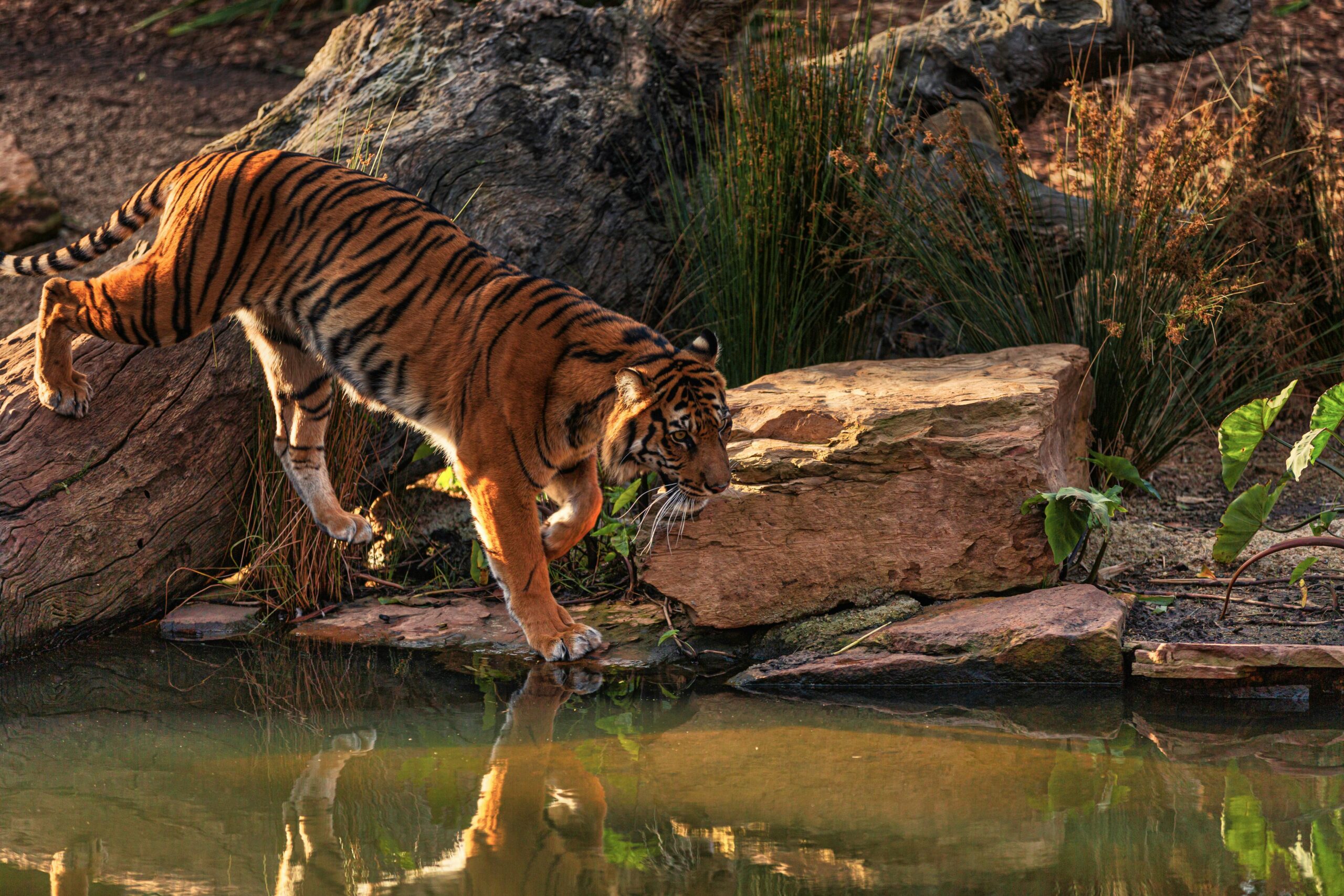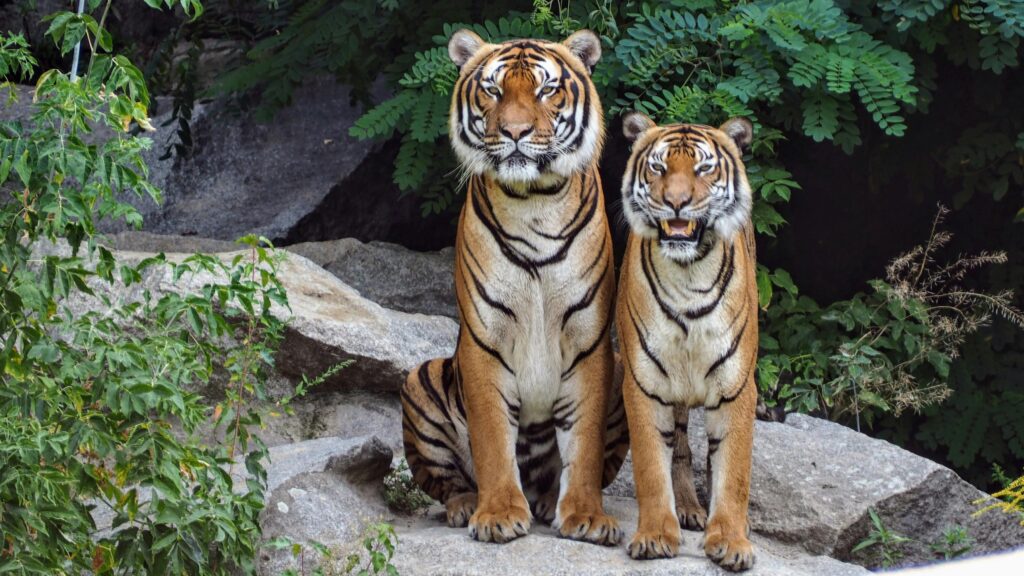Tigers’ majesty and demureness are well-known to captivate people.
Many people have dreamed of owning one since childhood, and some will not hesitate to spend a fortune on it.
But the question remains: should you keep a tiger as a pet?
Tigers are wild beasts that do not make good pets.
There have been numerous incidents of their attacks on their owners.
Most recently, a 200-pound Siberian tiger attacked and mauled its owner in Connecticut in 2004.
This, among many other incidents in which they have escaped from their owner’s secured territory, has led to concern for public safety and made their use as pet animals a concern.
However, if you want to know if you should keep a tiger as a pet to see if the benefits outweigh the concerns or for educational purposes, we are more than willing to help.
Species Overview
Common Name: Panthera Tigris
Size: 400- 670 ( 180- 310kg )
Height: 8 to 1o feets
Habitat: Asia, india, china, russia.
Lifespan: 15-20years.
Appearance
Can you Own a Pet Tiger?
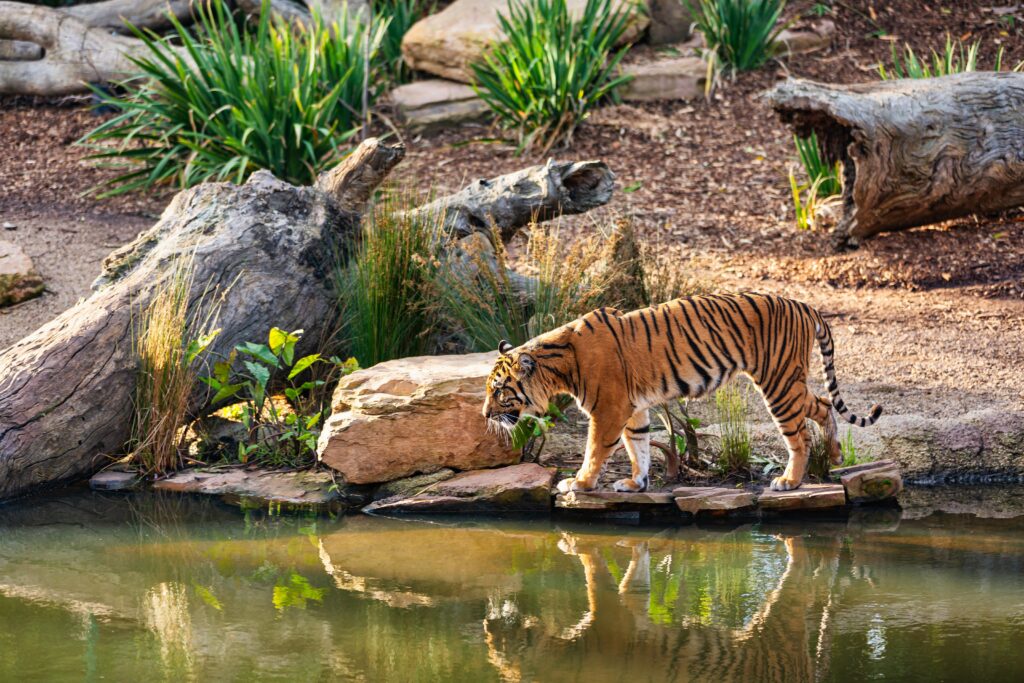
If all it takes to own a tiger is because of its beauty, sheer power, and athleticism, you should go ahead and do so.
But unfortunately, owning wild beasts is not a walk in the park.
There are other important considerations, such as:
Is it Legal to Own a Tiger as a Pet?
In many countries and states in the USA, it is illegal to own exotic animals, such as big cats, as pets.
Where it is legal, the requirements for permits, inspections, and enclosures are extremely stringent.
These bottlenecks make it almost impossible for anyone with just cash to own a tiger.
However, some states allow the use of tigers as pets under strict rules. These states are:
- Texas
- Ohio
- Alabama
- North Carolina
- South Carolina
Ethical and Safety Concerns:
Tigers are wild beasts, and all attempts to domesticate them have not been successful.
Their wild instincts and the threats they pose make them too dangerous for household living.
Zoos and reserves are the closest they can safely get to living alongside humans.
Also, the majority of tigers being sold are captured from conservation parks; buying one can contribute to this illicit trade, which has led to endangered species.
Tiger behaviour and temperament:

Unlike conventional pet animals such as dogs and cats, tiger behaviours and temperaments are unpredictable and fierce
Coupled with their weights of over 3ookg, fast running speed of over 40-5okm/h, their flexibility that allows them to twist and turn easily, and their excellent agility, it will be difficult to tame them when they are angry.
They are also excellent swimmers, so if you think you might have an advantage in the water, run away from them when they become uncontrollable.
They are capable of using their tails and webbed feet to propel themselves forward in water.
Their water skills have made them excellent not only in swimming but also in hunting crocodiles and fish in water bodies.
Although tiger cubs are adorable, they are also dangerous to have as pets, especially in a household that has children.
As they grow, they require large and secure spaces; their playful bites become painful, and their once fascinating mew becomes a thunderous, deafening thunder.
Some people are tempted to declaw the cub when they are growing.
This is a bad practice that not only affects their feeding pattern, balance, and prey prowl but also reduces their overall quality of life.
This practice is inhumane.
Tigers are generally difficult to train, even with professional help.
How Expensive is it to own a Tiger as a pet?
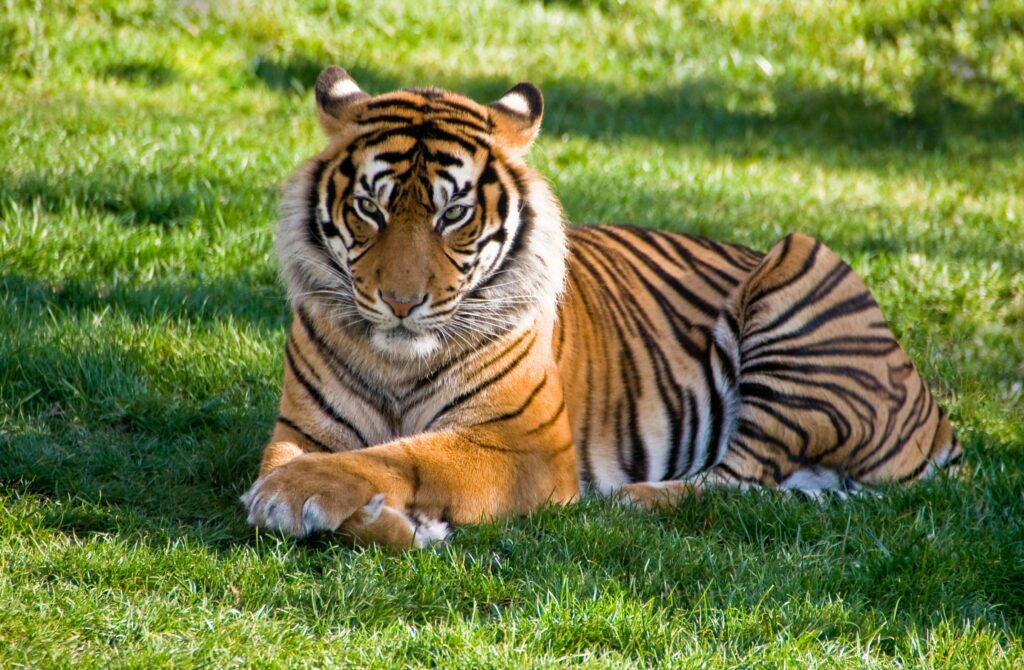
Tigers are very expensive animals to own.
They are more expensive than any exotic cat.
They cost around $7,500 to $20,000 to own, depending on factors such as the breeder, the species, age, and their well-being.
Aside from the cost of purchase, other expenses, such as enclosed and- large spaces, might even cost more.
On average, it costs about $10,000 to $50,000 to build an enclosure that is a minimum of 2,000 sq ft.
Other expenses, such as specialised veterinary care, cost about $3000; annual feeding costs $10,000; insurance costs $5,000; and the licence and permit cost roughly $1000 to $2000.
The total estimated annual cost is between $44,000 and $110,000.
Long-term commitment:
Pet ownership is a commitment during their lifetime.
It is a call for responsible ownership regardless of the type of animal, their breed, health status, age, sex, etc.
The average lifespan of a tiger is 15–20 years.
If you are considering purchasing a tiger, be prepared to commit to caring for it for 15 to 20 years. Unlike common pets such as dogs and cats, exotic animals like tigers cannot be easily given to neighbors, friends, or family, nor can they be taken to a shelter when their owners are sick or traveling.
The only option available is to take them to a wildlife sanctuary, zoo, national park, or reserve, or donate to a reputable organisation protecting wildlife animals and habitats.
What do Tigers Eat or Drink?
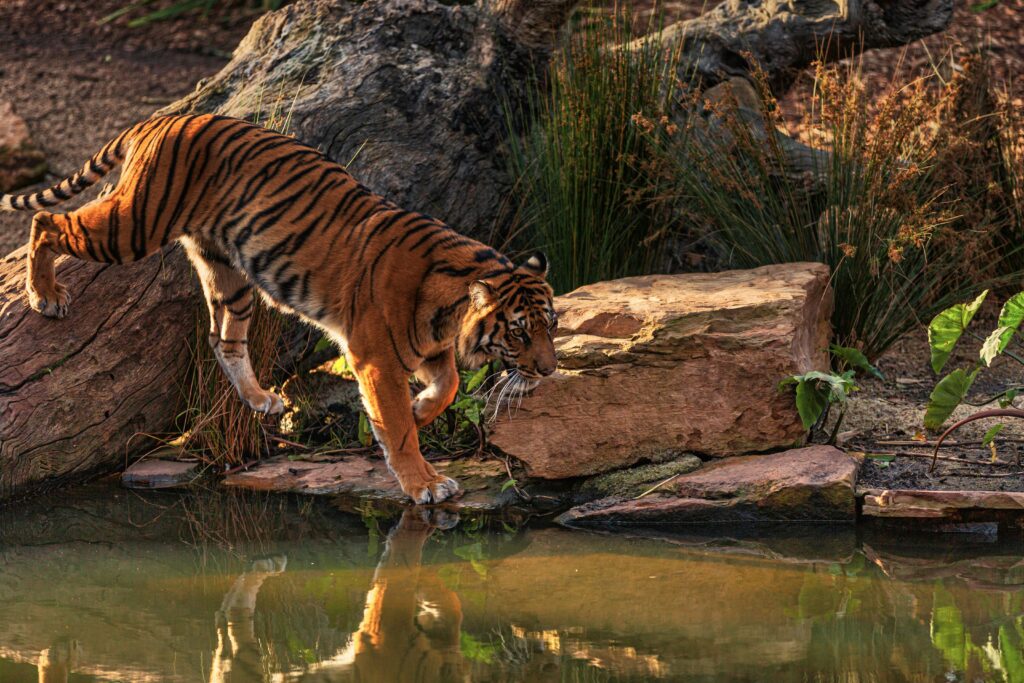
Tigers are canivores.
They hunt, kill, and feed on monkeys, deer, water buffalo, wild boar, gaur, antelope, fish, snakes, etc.
Their food requirements and intake depend on their age, size, and sex.
They are very skilled at hunting their prey, and they obtain water from streams, rivers, lakes, and ponds.
Their water needs are for drinking and cooling off.

